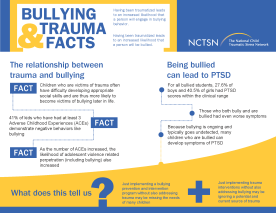
Bullying and Trauma Facts
Offers facts about bullying and trauma. This infographic provides facts about the relationship between bullying and trauma, as well as how being bullied can lead to PTSD.
The following resources on child trauma were developed by the NCTSN. To find a specific topic or resource, enter keywords in the search box, or filter by resource type, trauma type, language, or audience.

Offers facts about bullying and trauma. This infographic provides facts about the relationship between bullying and trauma, as well as how being bullied can lead to PTSD.
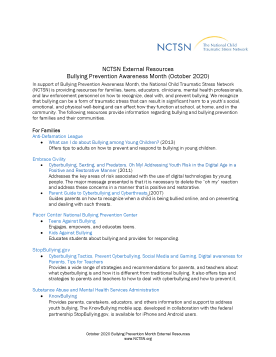
Provides external resources related to National Bullying Prevention Month.
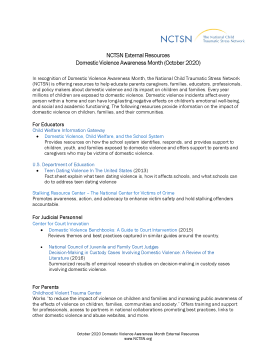
Provides external resources related to National Domestic Violence Awareness Month.
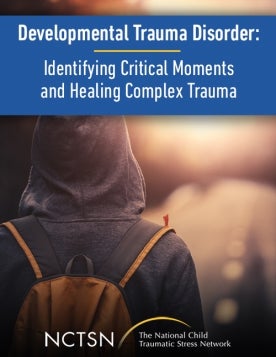
Presents trauma experts debating and exploring the pros and cons of adopting a formal Developmental Trauma Disorder (DTD) diagnosis.
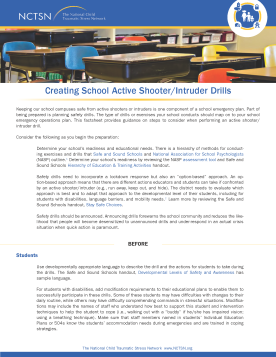
Provides information to schools about how to create a trauma-informed active shooter/intruder drill. This fact sheet outlines the steps to take before, during, and after for students, school staff, and parents.
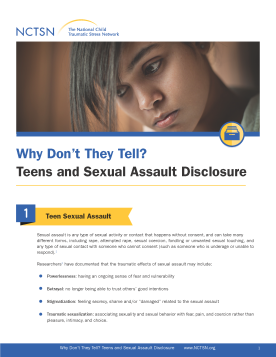
Offers information about teen sexual assault and disclosure. This fact sheet outlines why teens don't disclose sexual assault, the benefits of disclosure, and how to support teens after disclosure of a sexual assault.
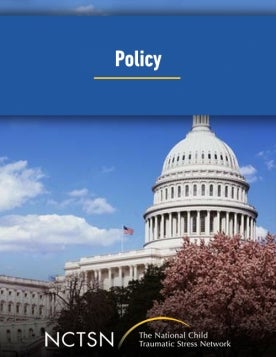
Gives examples of state and federal policy issues related to child sex trafficking. This webinar provides an overview of activities and resources related to child sex trafficking.
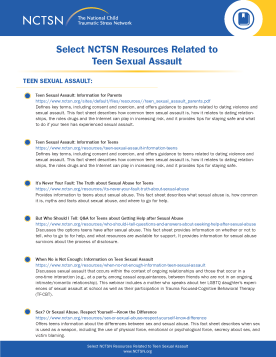
Identifies existing NCTSN resources related to teen sexual assault, acquaintance rape, sexual abuse, and child traumatic stress. The list includes fact sheets and webinars that offer information and tips for professionals, parents, and teens themselves.
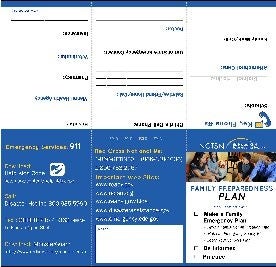
Allows families to list important telephone numbers and other information that could be useful in the case of an emergency. Each member of the family should carry these cards with them at all times in case an event occurs and all family members are not together.
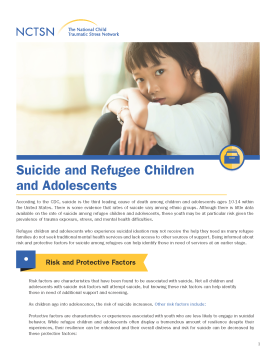
Offers information about risk and protective factors as related to suicide and refugee children and adolescents. This fact sheet gives strategies for talking with refugee children and adolescents about suicide.
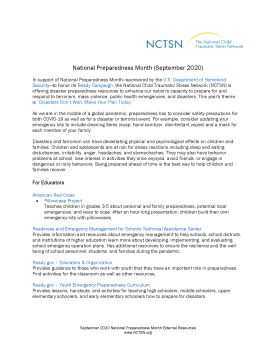
Provides external resources related to National Preparedness Month.
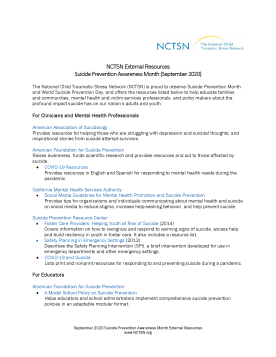
Provides external resources related to National Suicide Prevention Awareness Month.